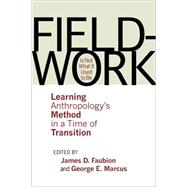
Note: Supplemental materials are not guaranteed with Rental or Used book purchases.
Purchase Benefits
What is included with this book?
| Foreword: Renewable Ethnography | p. vii |
| Introduction: Notes toward an Ethnographic Memoir of Supervising Graduate Research through Anthropology's Decades of Transformation | p. 1 |
| Appendix: A Note on the Literature Relating to Fieldwork and Ethnography | p. 32 |
| Reflections On First Fieldwork and After | |
| Phantom Epistemologies | p. 37 |
| Ethnographic Remnants: Range and Limits of the Social Method | p. 52 |
| On the Ethics of Unusable Data | p. 73 |
| Caught! The Predicaments of Ethnography in Collaboration | p. 89 |
| The Dracula Ballet: A Tale of Fieldwork in Politics | p. 113 |
| The "Work" of Ethnographic Fieldwork | p. 129 |
| On The Ethics of Being an Anthropologist (Now) | |
| The Ethics of Fieldwork as an Ethics of Connectivity, or The Good Anthropologist (Isn't What She Used to Be) | p. 145 |
| Teaching Fieldwork that is Not What It Used to Be | |
| Figuring Out Ethnography | p. 167 |
| Questioning a Text | p. 173 |
| Collaboration, Coordination, and Composition: Fieldwork after the Internet | p. 184 |
| Bibliography | p. 207 |
| Contributors | p. 221 |
| Index | p. 223 |
| Table of Contents provided by Ingram. All Rights Reserved. |
The New copy of this book will include any supplemental materials advertised. Please check the title of the book to determine if it should include any access cards, study guides, lab manuals, CDs, etc.
The Used, Rental and eBook copies of this book are not guaranteed to include any supplemental materials. Typically, only the book itself is included. This is true even if the title states it includes any access cards, study guides, lab manuals, CDs, etc.